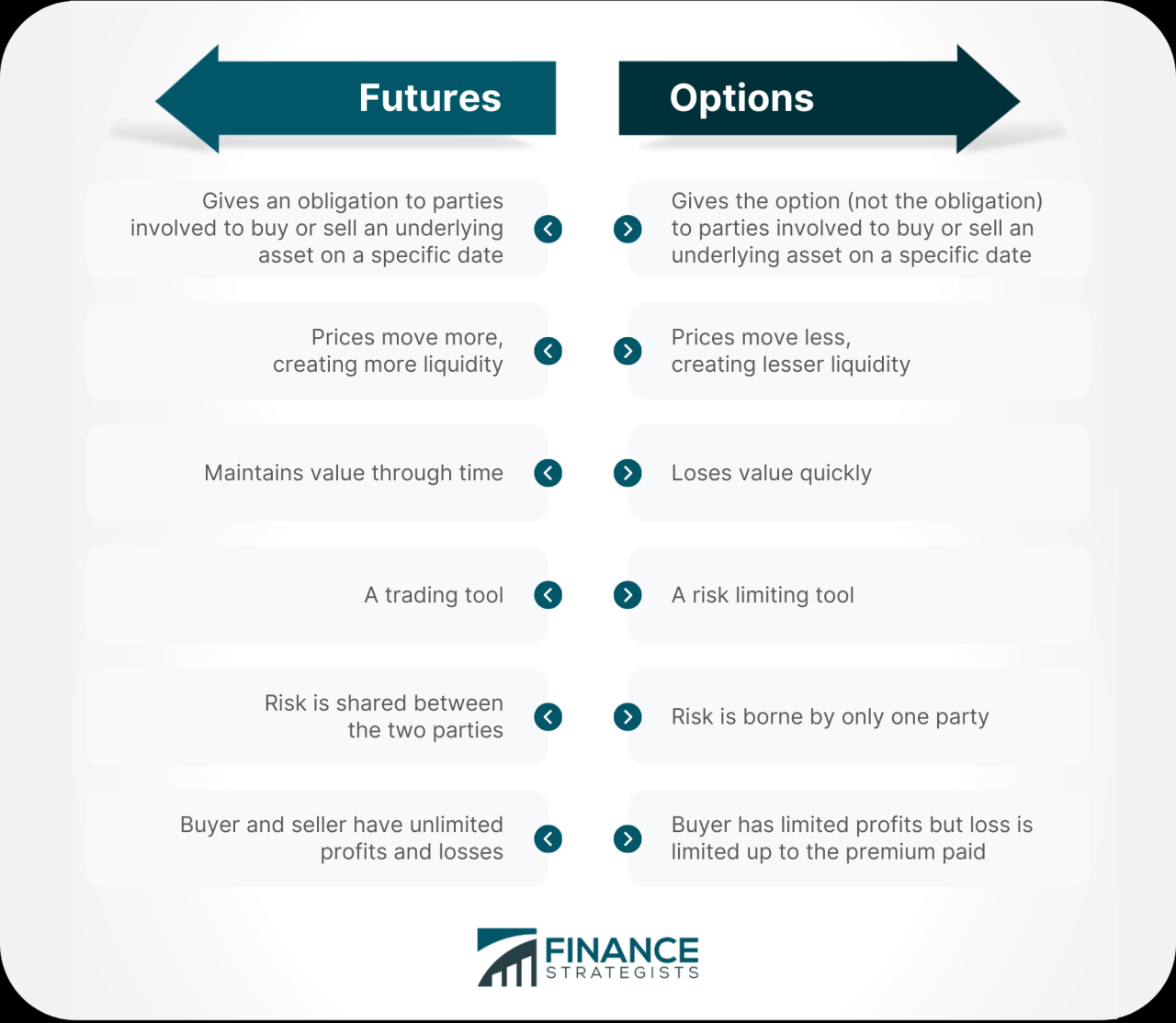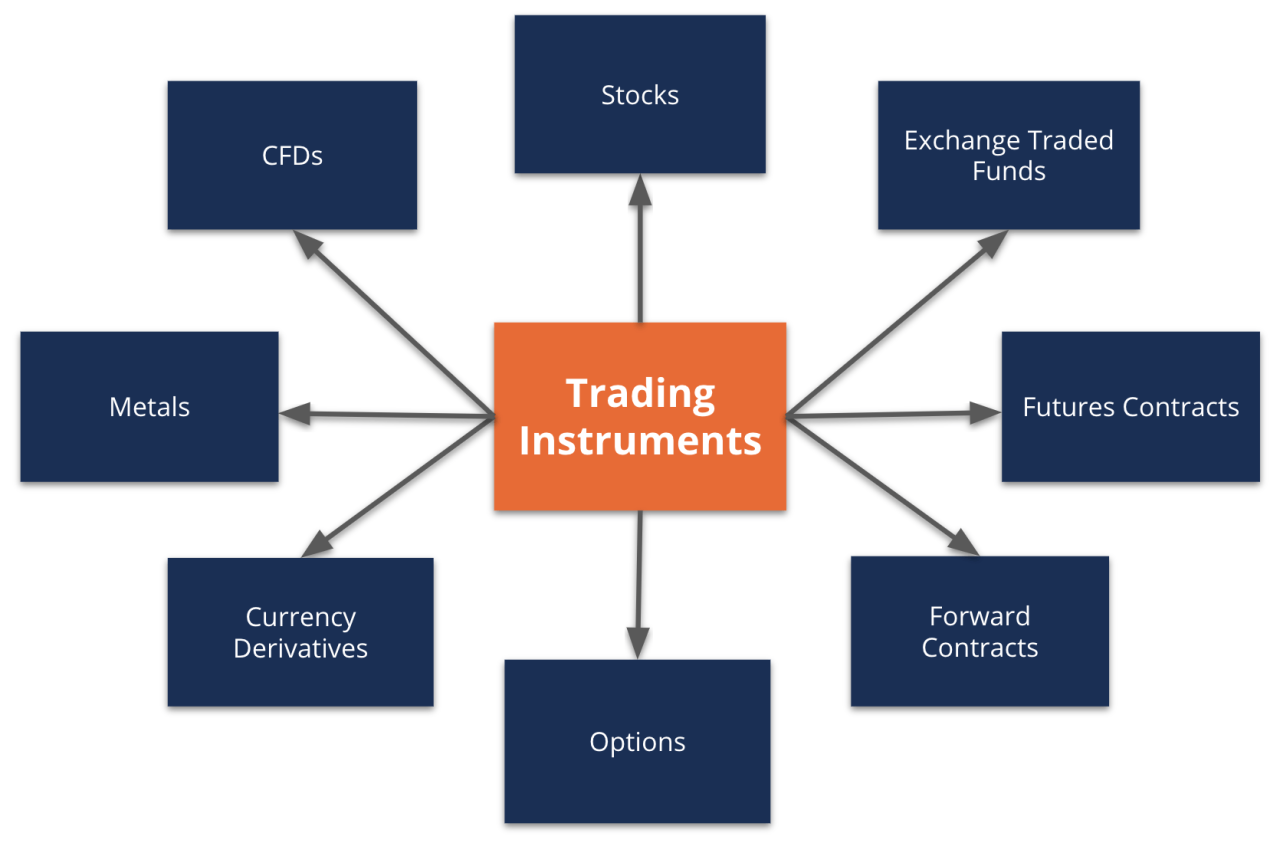
Forex vs Futures: Stepping into the world of financial markets, two prominent players, Forex and Futures, stand out, each with their unique characteristics and appeal. While both offer opportunities to profit from market fluctuations, their underlying assets, trading mechanisms, and risk profiles differ significantly. This exploration dives into the heart of these differences, helping you understand which market aligns better with your investment goals and risk appetite.
Forex, the global foreign exchange market, facilitates the exchange of currencies, with traders profiting from fluctuations in exchange rates. On the other hand, Futures markets trade standardized contracts for the delivery of underlying assets at a future date, allowing traders to speculate on price movements of commodities, equities, or interest rates. This guide sheds light on the key distinctions between these two markets, providing a comprehensive overview of their features, trading strategies, and suitability for different investors.
Introduction

The Forex and Futures markets are two prominent financial marketplaces where traders engage in buying and selling assets. While both offer opportunities for profit, they differ significantly in their underlying assets, trading mechanisms, and market structure.
Core Differences Between Forex and Futures, Forex vs futures
The Forex market, also known as the foreign exchange market, is a global decentralized marketplace where currencies are traded. It is the largest and most liquid financial market in the world, with trillions of dollars changing hands every day.
Futures markets, on the other hand, are centralized exchanges where standardized contracts for the future delivery of an asset are traded. These contracts obligate the buyer to purchase and the seller to sell a specific quantity of an asset at a predetermined price on a future date.
- Underlying Assets: Forex deals with the exchange of currencies, while Futures contracts cover a wide range of assets, including commodities (e.g., oil, gold), financial instruments (e.g., stock indices, interest rates), and agricultural products (e.g., wheat, corn).
- Trading Mechanisms: Forex trading is typically conducted over-the-counter (OTC), meaning transactions occur directly between two parties without the involvement of a central exchange. Futures trading, however, takes place on centralized exchanges, where contracts are standardized and traded through a clearinghouse.
- Market Structure: Forex is a 24/5 market, meaning it operates continuously throughout the week, except for weekends. Futures markets, however, have specific trading hours determined by the exchange.
Closing Notes

Navigating the complex world of financial markets requires understanding the nuances of each trading instrument. Forex and Futures, despite their shared goal of capitalizing on market movements, offer distinct avenues for investors. While Forex appeals to those seeking high liquidity and 24/5 trading availability, Futures provide a structured platform with standardized contracts and regulated exchanges. Ultimately, the choice between Forex and Futures depends on your individual risk tolerance, investment goals, and trading experience. By carefully considering the key differences, you can make an informed decision and embark on your investment journey with confidence.
Frequently Asked Questions: Forex Vs Futures
What are the main benefits of Forex trading?
Forex offers high liquidity, 24/5 trading availability, and a wide range of trading instruments, allowing for flexibility and diverse strategies.
What are the main benefits of Futures trading?
Futures provide standardized contracts, regulated exchanges, and potential for hedging against price fluctuations, offering a structured and regulated trading environment.
Which market is suitable for beginners?
For beginners, Forex might be more approachable due to its accessibility and availability of educational resources. However, both markets require careful study and risk management strategies.
How do I choose the right trading platform for Forex or Futures?
Consider factors like platform fees, trading tools, research capabilities, customer support, and regulatory compliance when selecting a platform.




